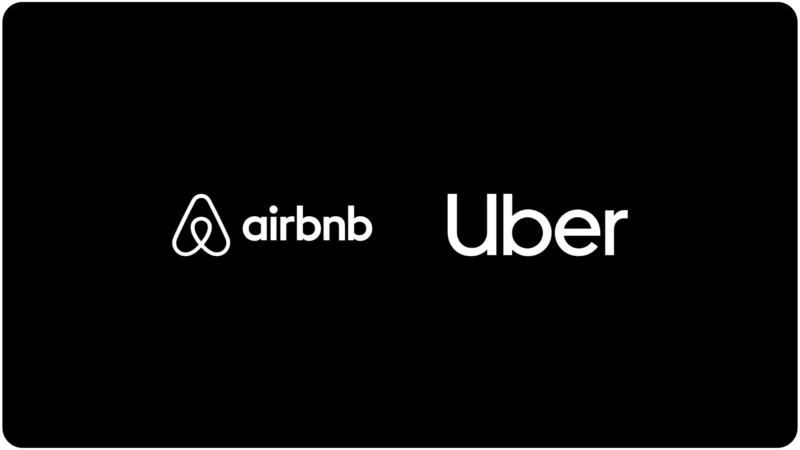
Pursuing a career in construction can come with many benefits, such as high-paying salaries, various roles, advancement opportunities, and hands-on work. The contracting business has shown to be quite resilient. Even in challenging economic times, the demand for contractors is high.
However, starting your contracting business offers an opportunity to turn your expertise and skills into a profitable venture. Whether you’re a newcomer or an experienced professional, starting your own business allows you to take control of your finances and career.
So, how do you start a contracting business?
This article will walk you through starting your general contracting business, from researching and creating a comprehensive business plan to financial management and so much more.
Let’s dive in!
How to Start a Contracting Business: Step-by-Step Guide
#1 Researching
It is solid to start with a strong foundation of research and planning before you make any investments in this venture. We know this phase is not the most fun to do and can often be overlooked. However, with the right research and planning, you’ll lay the groundwork to make the right decisions and successful strategies.
Market research: Hubspot defines market research as “the process of gathering information about your target market and customers to verify the success of a new product, help your team iterate on an existing product, or understand brand perception to ensure your team is effectively communicating your company’s value effectively.”
Even if you have extensive experience in this industry, diving deeper into market research might reveal surprising information about your buyers and competition.
So start by identifying your target market and niche. Understanding your market is crucial. Are you planning to specialize in certain projects – remodeling, new construction, or maintenance services? Who are you trying to sell to: homeowners, commercial clients, or both?
Identifying your market and target audience will help you tailor successful sales and marketing strategies.
#2 Creating a business plan
Business plans are the roadmap to success. It describes a company’s go-to-market strategy, financial forecasts, market analysis, corporate objectives, and mission statement. The business plan may also include a timeframe and information about key personnel responsible for reaching the objectives.
Here’s what you should include in your business plan:
- Executive summary
- Company description
- Market analysis
- Marketing and sales strategies
- Operational plan
- Financial projections
- Funding requirements (optional)
A good business plan shows you have a sustainable agenda when pitching in front of potential investors and/or partners.
#3 Legal and Regulatory Considerations
Making your contracting company a legal entity in the eyes of the federal government and your local state’s business archives is done through registration.
The most prevalent business structures are:
- Corporations.
- Limited liability companies (LLCs).
- Partnerships (between two or more persons).
- Sole proprietorships (i.e., one-person ownership).
No matter your chosen structure, you must register your business with the appropriate government authorities. This typically involves:
- Choosing a business name that complies with legal requirements.
- Registering your business with the state or local government.
- Obtaining an Employer Identification Number (EIN) from the IRS for tax purposes.
Obtaining Necessary Licenses and Permits
Starting a contracting business often requires certain licenses and permits to operate. Make sure you check your own country’s requirements. Commonly required permits for starting a contracting business can be:
- General contractor’s license
- Trade-specific licenses (e.g., electrical, plumbing)
- Building permits for construction projects
- Home improvement licences
It is common to need insurance coverage to protect against various risks and injuries. Understanding and meeting insurance requirements is essential to safeguard your business and assets in case of unforeseen incidents or disputes.
#4 Financing Your Business
Launching and growing a company requires a clear financial plan. Running a startup is never easy. So, to make sure you have enough money to effectively begin your company, it’s important to precisely estimate startup costs.
Estimating Startup Costs
You should thoroughly understand the investments you’ll need to make. And when it comes to the construction business, a lot goes into the right equipment and tools. The cost of building materials and equipment will always impact your bottom line. So, concentrate on developing long-lasting relationships with suppliers to minimize the costs wherever you can.
And, as you grow, you might want to add additional employees to your team or even hire sub-contractors. All of this should be included in your financial plan.
Securing the Funding
If the section above overwhelms you and you’re thinking, where do I get the money for all my expenditures, we’ve got you covered. Starting a new business is never easy, but it doesn’t have to be that hard with the right resources.
There are a few ways that you can fund your business by seeking outside help and support. First and foremost, assess your assets and savings. If you’ve been smart to put money aside, now is the time to check and put that savings account to great use. This approach allows you to control your business and its finances fully.
Secure venture capital from investors or partners: If your startup costs are substantial, consider seeking investors or partners. Investors can provide capital in exchange for equity in your business, while partners can share the financial responsibility and contribute industry expertise. However, be prepared to share decision-making authority and profits with partners or investors.
Look into crowdfunding: Crowdfunding is a method of obtaining capital for your company from many individuals, AKA known as crowdfunders. They provide financial support to your company and anticipate receiving a good or service from you in return.
Loans: You might want to consider business loans so that you can keep full control of your company. Most banks will want a solid business plan, a breakdown of your expenses (including set-up charges, labor costs, R&D costs, software management tools, web development, etc.), and financial predictions for the next three to five years. Knowing this will help you estimate the financing you’ll require and give the bank more confidence to approve your loan.
How to Start a Contracting Business: Download our Ready-to-Use Pitch Deck
As part of our standard pitch deck preparation, we have prepared a downloadable deck that provides a great base for you to build.
We recommend downloading the pitch deck, using it as a base, and customizing it to fit your needs and audience better.
*The Albusi team offers professionally designed templates of fictional companies that use real content instead of the typical “lorem ipsum” filler text.
Crafting a Project Management Framework
Project management is the core of keeping a contracting business running smoothly. Project management involves overseeing every aspect of a project, from planning and scheduling to execution and client satisfaction.
When setting up project management systems, begin by defining clear project objectives, scope, and deliverables. This means creating a detailed project plan outlining tasks, timelines, and resources.
Next, allocate skilled labor, equipment, and materials to each project based on its unique requirements, ensuring they’re available to prevent delays.
Regular updates and effective communication channels among all parties should be established. Don’t forget to maintain thorough project records, including contracts, permits, change orders, and daily logs – crucial for legal compliance and dispute resolution.
You can always make use of project management software and tools to streamline tasks like scheduling, budget tracking, and communication. They can significantly improve efficiency and accuracy in your operations.
Client-Centric Contracting
Ensuring top-notch quality will definitely determine your success rate.
So, maintain open and transparent communication with clients throughout the project. Address their questions, concerns, and feedback promptly. Keep them informed about progress and any issues that may arise.
Also, consider using client satisfaction surveys to continually gather feedback and improve your services. Satisfied clients are more likely to provide referrals and repeat business. Client retrospective materials can be handy for your marketing efforts, so don’t hide them.
Final Thoughts
As we wrap up this comprehensive guide, it’s important to highlight a few fundamental principles that can help you start and thrive in your contracting business journey.
Identifying Opportunities for Expansion: Like any other, the contracting industry presents a wealth of opportunities for those who are vigilant and forward-thinking. To achieve sustainable growth, be aware of emerging market trends and gaps.
Consider trying new things, entering new markets, or extending your demographic reach when the right opportunity arises. Think outside the box and don’t limit yourself.
Building a Solid Reputation and Client Base: As mentioned above, reputation is like an engine that will drive you to success. Building trust and credibility with your clients takes time and tireless commitment.
\What we actually mean is: consistently delivering high-quality work, prioritizing client satisfaction, and harnessing the power of positive reviews and client referrals. Focus on these and you’ll build a loyal and ever-expanding client base.
Emphasizing the Importance of Continuous Learning and Adaptation: In the contracting industry, change is constant. Technological advancements, environmental considerations, shifting market dynamics, and evolving customer preferences demand that you embrace a culture of continuous learning and adaptation. So, stay informed about industry trends, regulatory updates, and emerging technologies. Be agile and responsive, adjusting your business strategies to last in an ever-changing landscape. Sustainability is key here!
Remember that your reputation and client relationships are the pillars of your business, making your contracting enterprise a trusted and indispensable partner in your community.
Meet The Author Of This Article

Hi! I’m Elsa
I’m a Growth Marketer specializing in supporting small to medium-sized companies to thrive.
I focus on brand, business, and team growth to drive accelerated success.
Currently, I leverage content creation to share my personal growth journey and expertise.



